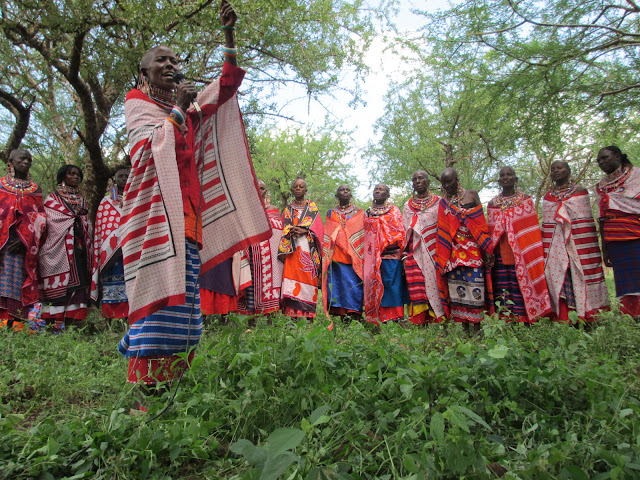The incident in which Nosero was killed was very unfortunate. Early on the morning of February 19th, a party of young morani (Maasai warriors) departed on a traditional lion hunt to kill the lion responsible for killing a lost cow the day before. The hunt was planned at night and sadly MWCT was not alerted in time to respond. Unfortunately, Nosero and her three cubs were found feeding on the cow carcass when the morani arrived; Nosero and two cubs were killed. The other cub was able to escape.
 |
| Nosero shown with her radio collar. |
In weeks prior to the fatal hunt there had been a sharp rise in planned lion hunts, with hunts prompted by nearly every incident of lion-livestock predation. Since the implementation of Wildlife Pays, MWCT's wildlife protection and livestock compensation program, there has been a marked decline of such hunts as the community embraced the reliability of compensation for losses and the increased economic benefit of tourism. However, this year a significant cultural moment within the community, the initiation of a new warrior age set, stressed this happy partnership with new pressures.
MWCT Rangers, Verifying Officers, Simba Scouts, and Kenya Wildlife Services intervened to stop twelve hunts during 2012, but nine hunts were already mounted in under two months of 2013. Several meetings were held with the new Maasai warriors and community elders, but despite these efforts to convince the morani to abandon the hunts, they persevered and killed Nosero before MWCT could be alerted.
 |
| MWCT officers speak to morani while halting a lion hunt in late 2012. |
Additionally, 2013 was widely anticipated to be an extremely challenging year due to the cultural significance of a new warrior age set being inducted. Traditionally, this is when many lions are killed throughout the ecosystem by newly minted warriors eager to prove their manhood through a traditional hunt. In February Prior to the incident on Feb. 19th in which Nosero was killed, MWCT and KWS prevented six lion hunts; two more were stopped in January. From this perspective, the killing of Nosero and her cubs was the only loss in a month that without MWCT's intervention may have seen a dozen lions killed.
 |
| MWCT's Simba Scouts received GPS training in late 2012 to become more effective in the field. |
Over her twelve years she gave birth to five litters with fifteen cubs total, so MWCT's efforts allowed this single lioness to add nine lions (three cubs were killed by fellow lion) to the local population. While saddened by any loss, we consider Nosero's life a shining example of how MWCT's work is assisting the recovery of the Tsavo-Amboseli lion population.








